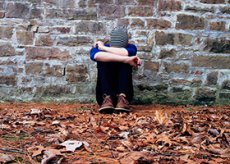New publications
Loneliness is a consequence of lack of sleep
Last reviewed: 02.07.2025

All iLive content is medically reviewed or fact checked to ensure as much factual accuracy as possible.
We have strict sourcing guidelines and only link to reputable media sites, academic research institutions and, whenever possible, medically peer reviewed studies. Note that the numbers in parentheses ([1], [2], etc.) are clickable links to these studies.
If you feel that any of our content is inaccurate, out-of-date, or otherwise questionable, please select it and press Ctrl + Enter.

Regular lack of sleep makes both the person and those around him lonely.
Have you ever wondered what will happen if you systematically suffer from sleep deprivation? We will think slowly, remember worse, we will become irritable and excitable. It turns out that this is not a complete list of consequences. Experts representing the University of California (Berkeley) claim that regular sleep deprivation can result in loneliness. And even more: close people and friends can also become lonely.
Scientists conducted an experiment involving 18 guys. The participants either slept all night or spent their time actively. The next morning, the guys were tested: a person approached them and had to be stopped at the most comfortable distance from them. The testing was duplicated on video, which was then filmed in an MRI chamber, assessing the brain's work at the time of the study.
In both cases, the comfort distance was much longer for those participants who had a sleep deficit. In other words, the lack of rest for the brain forced the guys not to get too close to other people. At the same time, in the brain structures, against the background of a sleepless night, the area that analyzes the likelihood of unpleasant moments associated with other people is activated. And vice versa, the area responsible for mutual communication with another person and for establishing social contacts was blocked.
The scientists first assumed that sleep-deprived people were lonely because their brains were tired and sought refuge from the additional burden of socializing. And indeed, when 140 other people were asked to wear special devices that displayed the duration and quality of their sleep, it was found that those who spent a lot of time without sleep felt lonelier.
The specialists then set themselves a new task: to determine how the people around them react to those who do not sleep at night. The videos with the participants were shown to a thousand volunteers, who had to evaluate what kind of guys people would talk to, and which of them looked more lonely.
As it was found, from the outside a person with a lack of sleep not only looks lonely, but also other people have no desire to establish contact with him.
But during the experiment, one unexpected moment emerged: those volunteers who watched the video with sleep-deprived participants also began to feel lonely. That is, they seemed to be “infected” with loneliness. As the scientists explain, it is quite possible that people unconsciously adopt someone else’s social problem or unstable mental state, after which they change their feelings, and this is absolutely normal.
The next work of scientists will be devoted to the following question: does the reaction of the psyche to lack of sleep depend on age? After all, only young people took part in the current experiment. However, doctors already advise: if a person has a tendency to a lonely lifestyle, then to solve this problem, you first need to simply get enough sleep.
The information is published on the pages of Nature Communications (https://www.nature.com/articles/s41467-018-05377-0).

 [
[